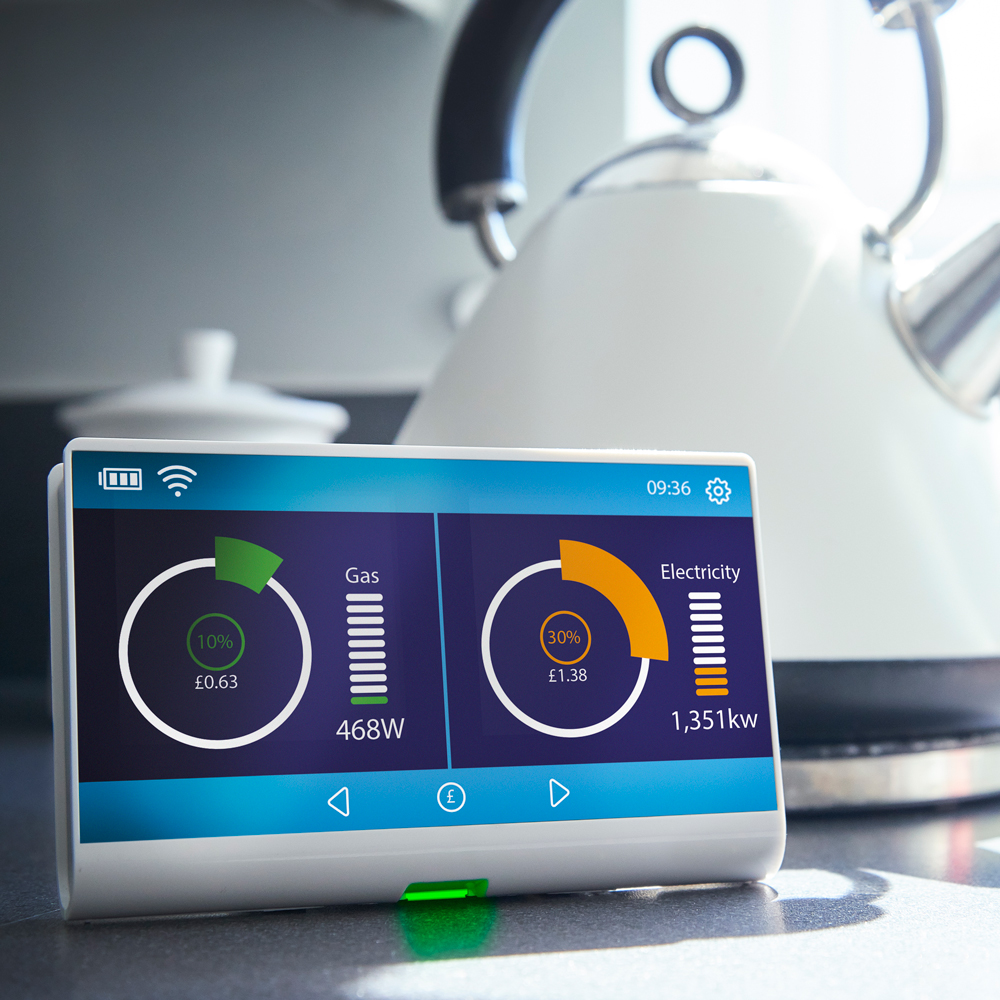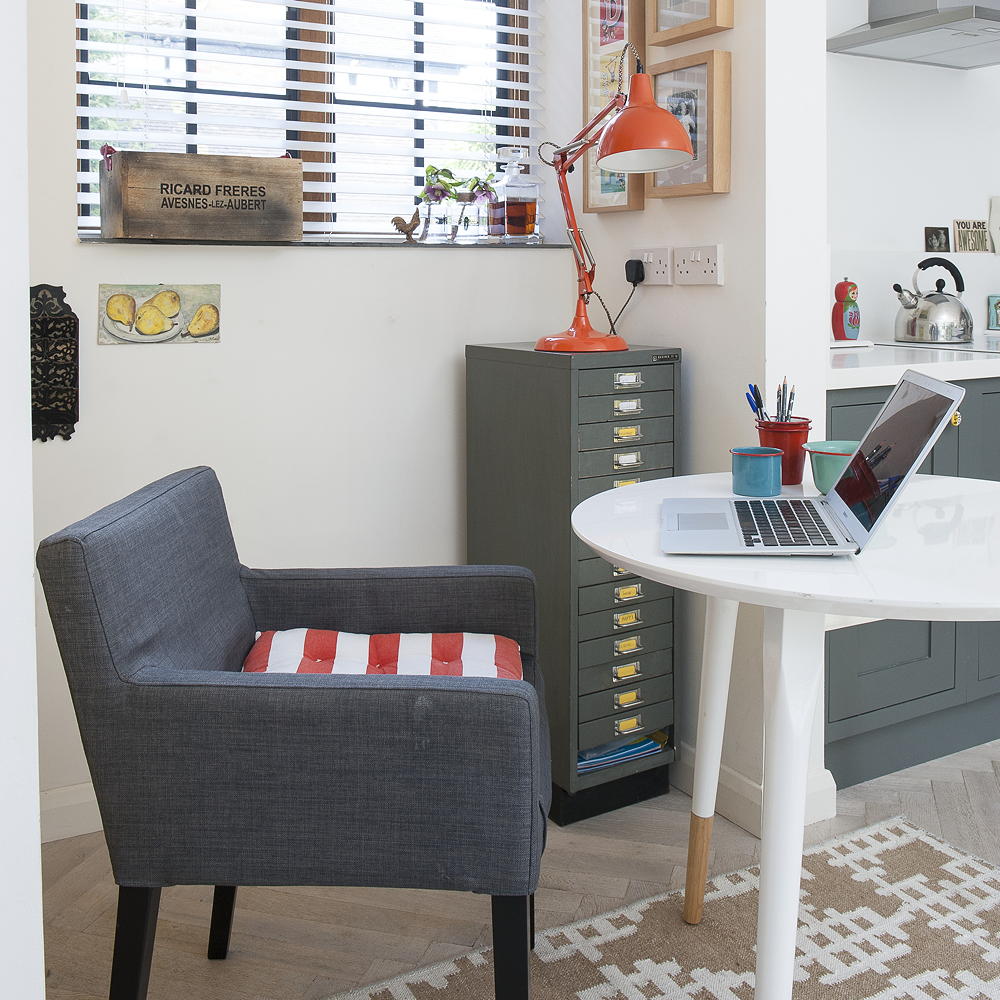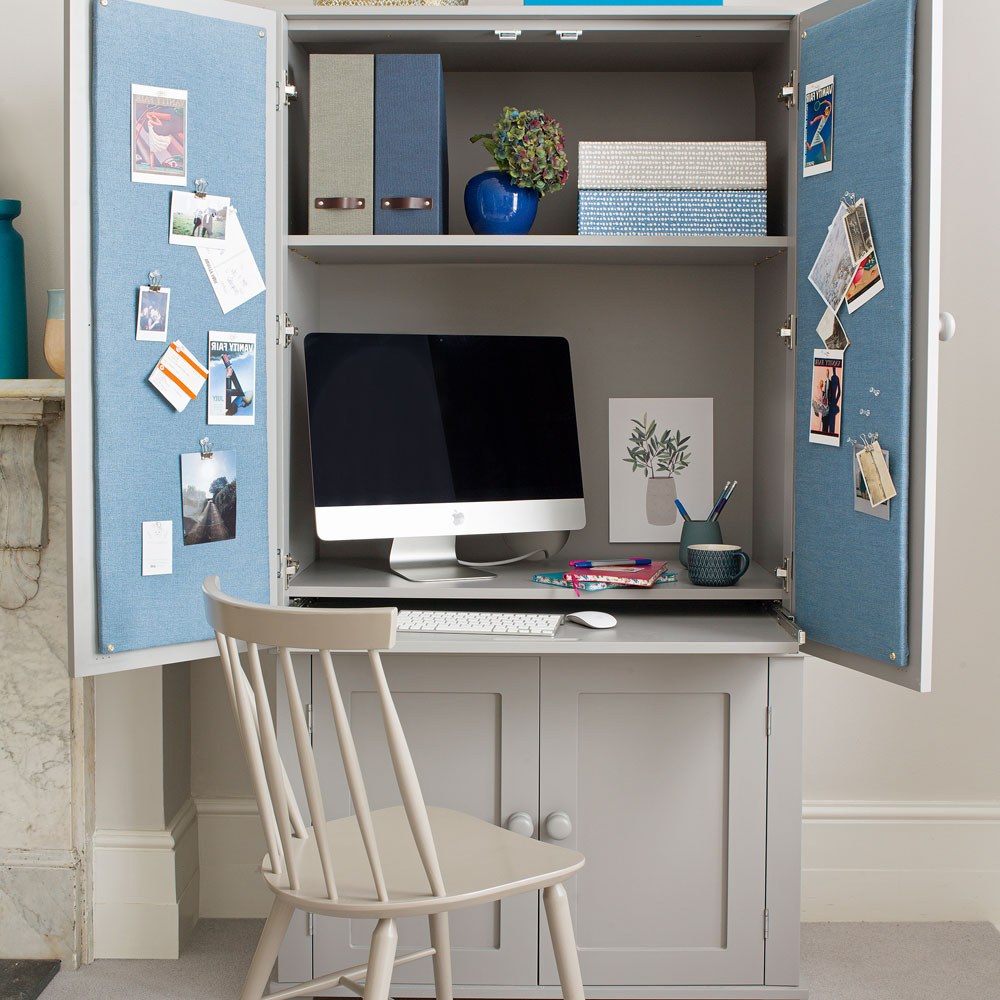What is a smart meter and how does it work?
Figure out if your home could benefit from a modern meter to better manage household bills

Sign up to our newsletter for style inspiration, real homes, project and garden advice and shopping know-how
You are now subscribed
Your newsletter sign-up was successful
By now we're all familiar with the term smart meter, but just what is a smart meter? How does it work and why should you consider having one in your home?
Whether it's a smart meter for gas, smart meter for water or a smart meter for electricity they all work on the same principal – smart usage readings to provide better, more accurate calculations for household utility bills.
What is a smart meter?

So, the big question first - what is a smart meter? ‘Smart meters are the new generation of gas and electricity meters,’ explains Flurr Lawton from Smart Energy GB. They are being installed in homes across Great Britain at no extra cost, to replace the traditional meters, including prepay meters, that most of us currently have ticking away under the stairs, or outside our homes.’
‘Smart meters record your energy use in the same way as a traditional meter,' adds Flurr. 'But they also transmit the readings to your energy supplier, allowing them to prepare an accurate bill.’
What do smart meters actually do?
As for how smart meter works, they provide fast gas and electricity readings which are automatically sent (at least once a month) to the utility supplier via a secure data network. This means that you no longer have to submit meter readings yourself manually. It should also mean that your bills are no longer based on estimates of usage.
Smart meters usually come with a portable hub. This displays exactly how much gas and electricity you’re using in real time, as well as what it’s costing you in pounds and pence. This can help you keep track of what appliances are costing you more to run and if this varies during specific times of the day. A great way to budget while still keeping your home warm in winter.
What is a smart meter for gas and a smart meter for electricity?
If you're wondering the difference what is a smart meter for electricity or for gas, they both essentially fulfil the same function. Separate smart meters are installed for gas and for electricity.
Sign up to our newsletter for style inspiration, real homes, project and garden advice and shopping know-how
Depending on your supplier (whether you receive your gas and electricity from the same or different providers) the readings from your meters are sent in real time to a single portable home display where you can keep an eye on the separate readings for your energy consumption in your household. So you won't get unexpected surprises and wonder why your electricity bill is so high.
How do I read a smart meter?
You can take a reading from your smart meter in one of two ways. Either from the portable in –home display from the menu screen you should scroll to the 'meter reading' screen. There you’ll find your current usage.
Depending on the type of portable display you have, you’ll be able to get a breakdown of your usage by day, month, billing period, and so on.
Taking a reading from the smart meter itself depends on the type of meter you have installed. Citizens Advice offers walkthroughs of how to read the various types of meters installed in most UK homes.

What are smart meter pros and cons?
If you're debating 'should I get a smart meter', then it's important to be aware of the pros and cons.
‘Lots of people think smart meters are great and to be fair, they’re the future’, says Gareth from GoCompare.com. ‘If you get one installed, it's likely to be a SMETS2 type meter and that means it will be compatible with other suppliers if you transfer to another provider at a later date. The hope is, ‘that by increasing your awareness of price and use, you'll cut your consumption and save money.’
‘On the downside, accurate billing sometimes means you'll have to pay for the energy you use each month. For instance, more in the winter and less in the summer. That can make budgeting more problematic, especially for those on a tight budget. Also we'd recommend talking to your new supplier about this before you go ahead’.
Of course, as with any form of electronics and smart home products, the technology of smart meters can occasionally fail. Which could leave you not knowing how much energy you’ve consumed, and therefore not know your next bill is going to be based on.
Such failings can make it hard to take (or send) readings, which will in turn affect your billing. They’re not the most intuitive of devices either, so those that lack any tech know-how may find smart meters to be quite confusing.
Additionally, it's important to know that there are reasons why you might not be able to have a smart meter at all.
Will I save money with a smart meter?
‘Just having a smart meter installed doesn't automatically save money,’ says Flurr from Smart Energy GB. ‘But the in-home display that comes with your smart meter helps you keep on top of your energy bill.’
‘A big advantage to having a smart meter is also the energy usage data it gives you. Which you can use to identify times and situations when you're using more or less,’ she adds. ‘For example, you may realise that leaving your computer on standby consumes more energy than you had thought; getting into the habit of turning it off completely when it's not in use.’
‘Similarly, you may not be able to work out just how much energy your washing machine consumes, and see the real energy saving benefits of switching to eco cycles, or line drying rather than tumble drying washing.’
Using a smart meter alongside an energy monitoring plug, available on Amazon, will help you to figure out exactly what is using the most energy and help reduce those bills.

Do I have to get a smart meter?
If you're asking if you have to get a smart meter, the short answer is no. No –one is obliged to get a smart meter installed. However, some suppliers are making it a precondition that consumers get one installed in order to access their best deals.
How do I top up a smart meter?
Smart meters are available no matter how you pay your bill. So if you’re a prepay customer (topping up with a card or key) you can avail of the benefits of having a smart meter. It’s also easier to top up, with more options – online, via an app, by text or by phone.
Will my smart meter work if I change suppliers?
Your smart meter should still work if you switch energy supplier, but it depends on the type of meter.
‘Second generation (SMETS2) meters will retain their full smart functionality following a switch of supplier, explains Flurr from Smart Energy GB. ‘The issue with switching only relates to some older, first generation (SMETS1) meters, which are no longer being installed.’
What if my smart meter stops working?
Take a manual reading from the meter itself as soon as you’re aware of the problem. You may need to refer to this later.
Work out whether it’s the smart meter itself or the portable display which has the problem. Check the portable display power supply – it might have flat batteries or not be plugged in properly. Displays work best when they are positioned close by the meter. Try repositioning the display to a closer location.
If the problem still isn’t resolved, check that your supplier is receiving readings. If they are, then it’s a display problem. If the display unit is under 12 months old they should be able to send you out a new one. You may have to pay for a new display if it has incurred damage which was your fault.
Finally, if the supplier is having connectivity problems with your meter, you may need to take regular manual readings until the problem is resolved.

Ginevra Benedetti has been the Deputy Editor of Ideal Home magazine since 2021. With a career in magazines spanning nearly twenty years, she has worked for the majority of the UK’s interiors magazines, both as staff and as a freelancer. She first joined the Ideal Home team in 2011, initially as the Deputy Decorating Editor and has never left! She currently oversees the publication of the brand’s magazine each month, from planning through to publication, editing, writing or commissioning the majority of the content.